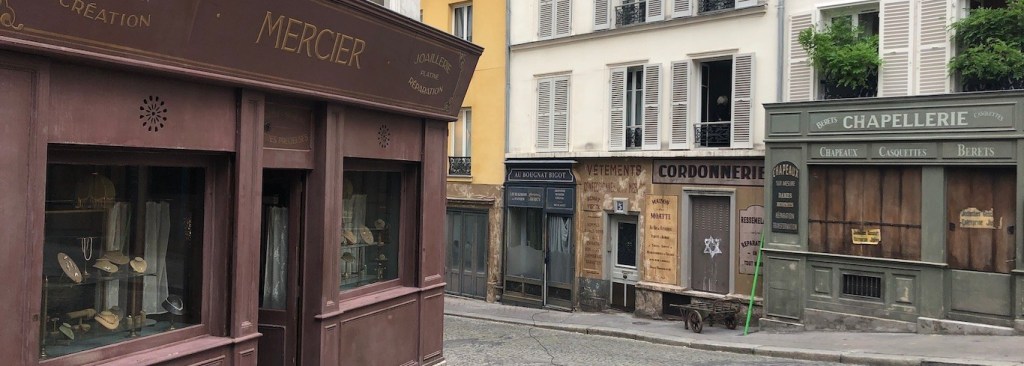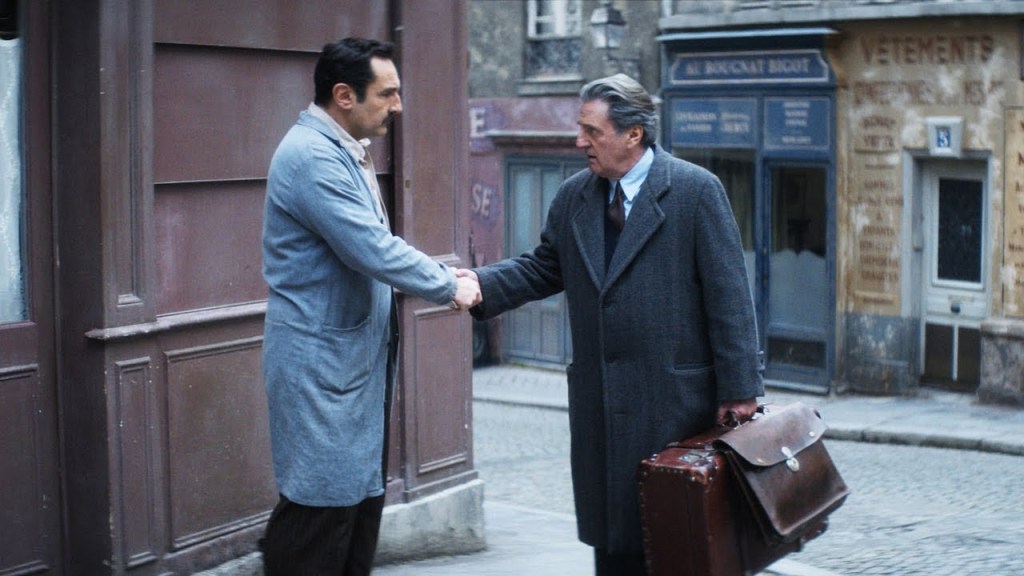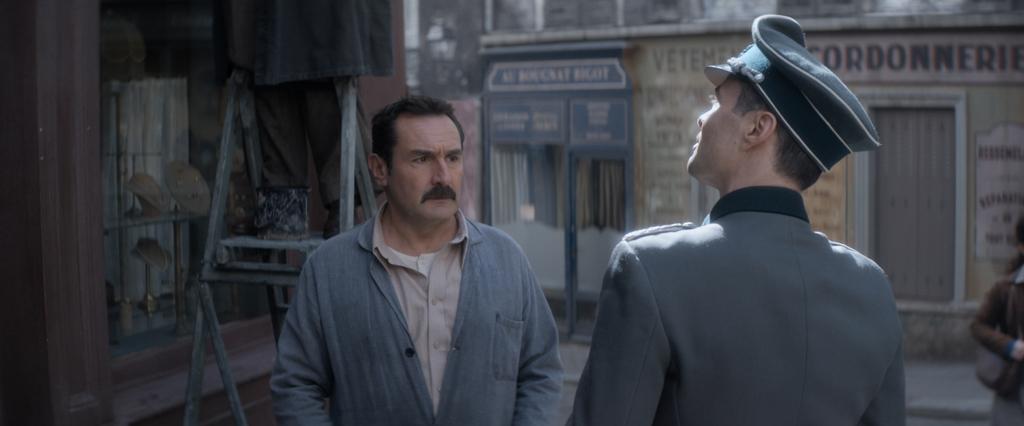Archival Spaces 345
Adieu, Monsieur Haffmann (2021)
Uploaded 19 April 2024

On 14 April, Hilary Helstein and the Los Angeles Jewish Film Festival hosted a screening of Farewell, Mr. Haffmann (2011) at the Laemmle Royal in Santa Monica Blvd. It is a film about the Holocaust, more specifically about the French participation in the genocide of European Jewry, produced by French film companies, which may remind audiences of films, like Lacombe, Lucien (1974), The Last Metro (1980) or Au revoir les enfants (1987). However, the film directed by Fred Cavayé offers a different take, one that explores the moral complexity of the Shoah as developed through character by its brilliant cast. Based on a play by Jean-Philippe Daguerre, Cavayé and scriptwriter Sarah Kaminsky substantially altered the original conception of the film’s perpetrator. Dr. Michael Berenbaum, a distinguished Holocaust scholar and professor at the American Jewish University, fielded the Q & A after the screening, and illuminated some historical context for the film. Having won numerous audience awards at film festivals, the film is now playing nationally.

Adieu, Monsieur Haffmann opens with a close-up of a pair of legs walking on cobblestone, the metal brace on the left leg giving the clackity-clack of his gate a particular sound, and indeed the identification of the sound of footsteps on the pavement or on staircases will become a major plot element. In September 1941, more than a year after the Nazi occupation of France, a Parisian Jewish jeweler, fearful of the coming deportations, gives his shop to his employee, who has agreed to return it after the war. Such a process of “aryanizing” a business, though seemingly a good idea when Mr. Haffmann suggests it to his assistant Mr. Mercier, was in fact standard operating procedure for the Germans to confiscate and appropriate German-Jewish wealth: First you named an “Aryan” caretaker, then you forced the original owners to sell the business at a fraction of its value, whether the huge Wertheim Department stores in Berlin, or the giant Ullstein publishing house or a mom-and-pop store, as is the case here. While Haffmann’s family escapes to Southern France, he is trapped in the shop and becomes a virtual prisoner in the basement, forced to produce jewelry for his former assistant, while Mercier and his wife Blanche are living the kind of bourgeois existence upstairs they had only been able to dream about. He not only actively collaborates with the Germans, refitting jewels confiscated from Jewish citizens and earning a fortune, he ultimately denounces his former employer to the police.


When Mercier and his wife go to see a fertility doctor in the film’s second scene, a secondary plot, involving impotence is introduced. Mercier who is seemingly unable to conceive, wants Haffmann to impregnate his wife so he can sport a son, but the Jeweler refuses after a first unsuccessful attempt. Blanche eventually becomes pregnant when Mercier rapes her in a drunken stupor. That he becomes fertile through violence ironically symbolizes his path to Fascism and betrayal.

Obsessed with keeping his family safe and blinded by his sudden wealth, he loses his moral compass, unlike Haffmann who retains the moral high ground as a victim, as well as through his considerate treatment of Blanche. However, though corrupted, Mercier remains a somewhat sympathetic if pitiful character, thanks to nuanced performance by Gilles Lellouche, playing next to Daniel Autheuil’s equally human Haffmann. When Mercier is arrested outside his shop because he has been mistaken for a Jew, his wife, who has watched him descend into crass opportunism and amorality, hides behind the curtain, rather than support her husband, possibly revenge for the rape possibly a radical act of falling out of love, now that she is carrying his child.


The film ends on a supposedly positive note when Haffmann reaches so-called unoccupied France, euphemistically called “free France,” and is reunited with his family. Here, the French penchant for obfuscating French national culpability in the Holocaust again comes to the fore. For decades after the war, the French upheld the myth of la resistance, blaming it all on the German occupation. Yet, under the Vichy government Jews were rounded up and placed in notorious concentration camps, like Gurs and Le Milles, just as in Paris under German occupation, while it is the French Police, which was wholly responsible for the identification and deportation of foreign-born and French Jews in France. In the film, the Nazis only appear as clients of the jewelry shop and frequenters of nightclubs, while invisible hands paint Stars of David on Jewish shops. According to Dr. Berenbaum, 75% of French Jews survived, while 73,500 Jews, mostly foreigners, perished in the death camps. It therefore remains an open question at film’s end, whether the Haffmann family survived and was able to return to its Parisian shop, though we know Mercier is deported to the death camps. Just deserts? Maybe too much irony. It is the only moment, the film falls out of a terrible reality.

Very well-written review which thoughtfully explored the nuances (“The film ends on a supposedly positive note’) of the film’s depiction of the time when France was occupied by the Nazis.
LikeLike
I’ve not heard of this film, Chris, glad you brought it to my attention; I am still ponderin The Zone of Interest, which think is one of the best Holocaust films.
LikeLike